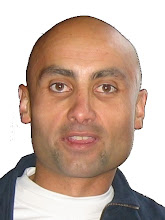How do you learn?
Do you like to highlight the books you read?
Do you like to write your own notes on books?
Does that make you learn faster?
I don't know about you... but I learn a lot faster when I write all over my books. So much so that I developed a set of symbols to better, interpret my notes long after I created them. I have notes that indicate further research, notes that indicate a bridge to other books, etc, etc.
What I know results from my mental notes, from the books I read and from everything I saw, I listen, I felt, I tasted, and I smelled. My knowledge is a "soup" of all my sensory experiences, processed and stored in my brain, by a constantly evolving process; the epistemic process.
Even though my knowledge results from the accumulation over time of all these experiences, knowledge itself is a lot more than the sum of the parts. The reason is simple. These experiences are stored in special containers (neurons) that can communicate among themselves, resulting on something very different from a file archive.
In fact, the better way to picture what happens inside the brain is by imagining a huge aquarium able to host any species of fish. The most successful species are those able to form schools, because moving together (swarming) ensures a much better protect against predators (in this case forgetfulness). The fastest each fish reacts to the movement of its neighbors, the stronger the school. Human knowledge works the same way. The closer knowledge quantum is, and the fast it can be update, the stronger knowledge is.
Since the beginning of learning that, we have been using exams to determine what we know. However, grades focus on just one species at a time (and not that well), taking the part for the whole. Assessing knowledge needs to evolve towards a more holistic perspective. It needs to account for all knowledge quanta and equally important, how they interact. A more accurate way to do it is introducing the concept of a field; the knowledge field.
Subscribe to:
Post Comments (Atom)




No comments:
Post a Comment